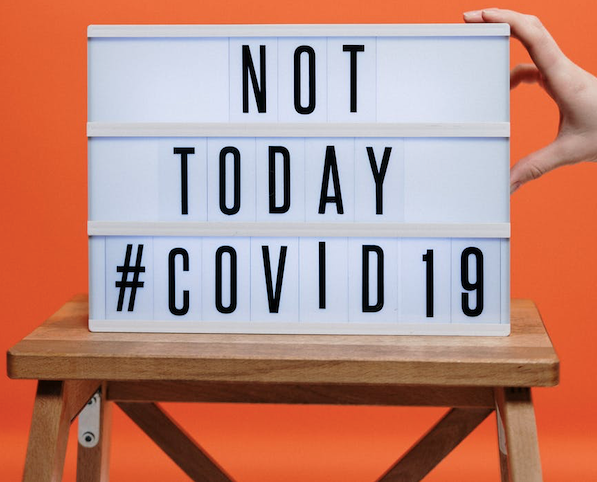6 Tips For Job Hunting During The COVID-19 Outbreak
6 Tips For Job Hunting During The COVID-19 Outbreak
While Coronavirus is the hot topic amongst your family, friends and colleagues, it is not only affecting the health of hundreds of people, it’s also affecting the workplace environment and job security of people across the UK.
Despite the uncertainty, it is important to remember that a lot of companies are still recruiting. Social distancing has become the new norm but this hasn’t made it impossible to apply and interview for the roles that are still available thanks to easy online applications and the possibility of phone and video interviews. So, here are a few tips to help you if you are job searching at the moment…

Multi-channel approach
Don’t just rely on the same types of job searches you’ve been doing time and time again if these tactics aren’t getting you anywhere. Use a multi-channel approach to make sure you’re covering all the bases! A simple Google search will bring up tons of online job boards where you can search for jobs by location, salary, keywords and more. This is always a good starting point but there are other avenues available to you.
Have you been keeping a list of contacts from previous jobs, networking events or other relevant forms of communication? Start emailing these people to see if they have heard of any job opportunities! Do you know of any specific companies you’d love to work for but aren’t sure if they’re hiring? It can’t hurt to send them your CV and an explanation of why you believe you’d fit into the company and what you can do for them!
Finally, don’t forget about checking in with recruiters directly. Here at ASC we can do a lot of the hard work for you. We have our own jobs portal where we post all the latest job opportunities from our clients, and you can also upload your CV to receive job updates and career advice directly to your inbox. We can also help with restructuring your CV, tailoring your interview skills and providing you with industry insights.
Be prepared to step out of your comfort zone
Yes some companies are still recruiting, but others have chosen to pause their search for new employees due to having to send staff to work from home. This means there may not be as much variety within the specific industry you are wishing to work in. Therefore, it’s definitely worth keeping an open mind as to the kind of job you’re searching for and perhaps researching other industries to see if there’s more vacancies elsewhere.
Really take time to evaluate the experiences you have had before, what skills you have learned and which of those skills are transferable. Transferable skills are your secret weapon to opening up opportunities for yourself in areas of work you may not have thought about before and could be the difference between you successfully stepping out of your comfort zone or staying put in an industry where you have exhausted all avenues for employment.
Switch up your CV

Your CV is the most important document you have when applying to jobs. But did you know that you should be adjusting it every time you apply to a new role? It’s good practice to read the job description thoroughly for any job opportunity and then tailor your CV to highlight the skills and experience relevant to the opportunity. This makes it easier for the employers to see why they should hire you over someone else.
Anticipate delays and keep searching
While companies are dealing with the ramifications of Coronavirus, there may be delays in responses to your applications. Don’t let this get the better of you and make sure you keep searching and applying. The more research you do and applications you send out, the more likely you are to get a response. It also doesn’t hurt to follow up on an application just to say that you hope they received it, thank them in advance for taking the time to read through it and give them a short reminder of why you applied in the first place.
Vamp up your LinkedIn profile
Did you know that more than 90% of recruiters use LinkedIn? It is the best social media platform at your disposal when it comes to job searching but it is also an opportunity to create your brand. Once an employer reads your CV, they may be tempted to look you up online and if your LinkedIn profile matches the information you’ve given in your CV they are more likely to see you as a trustworthy candidate.
If you already have LinkedIn, make sure all the information is up to date and make the effort to connect with people relevant to your experience and the industry you wish to work in. If you haven’t got LinkedIn make sure you create a profile now! It really can boost your chances at not only finding job vacancies but also the likelihood of being asked for an interview.
Practice your phone and video etiquette
If you manage to get to the interview stage of an application process this is now likely to take place over the phone or over video platforms like Skype due to the social distancing advice from Government. If your interview is over the phone, this can make it more difficult to get your personality across as the employer will solely rely on the tone of your voice and range of vocabulary. Try doing some mock interview questions with friends or family over the phone and get them to be honest with you about how you could improve your speech.
If your interview is over Skype or a similar platform, make sure you are camera ready! It can be off-putting using these platforms as you can see yourself at the same time as the interviewer – make sure you keep your eyes on your interviewer instead of staring at yourself as this could mean you’re tempted to fidget or get distracted from what is being asked. It’s also good practice to make sure you have a go-to space in your home where you can do these interviews. It certainly wouldn’t look professional sitting in your bed in your loungewear!
Looking for a job can be tiring work but that’s where ASC can help. We take that stress away, supporting you to not only find a job and company that is right for you, but we can also help you achieve your career goals!
Find out more about how we can help here.

Hannah McNally is a Social Media Marketing Manager for ASC Connections. In her current role, she loves creating content that can help candidates develop their knowledge and skills of the industries they wish to work within and increase awareness of the ASC brand so they can better reach potential candidates and clients.
SHARE BLOG


